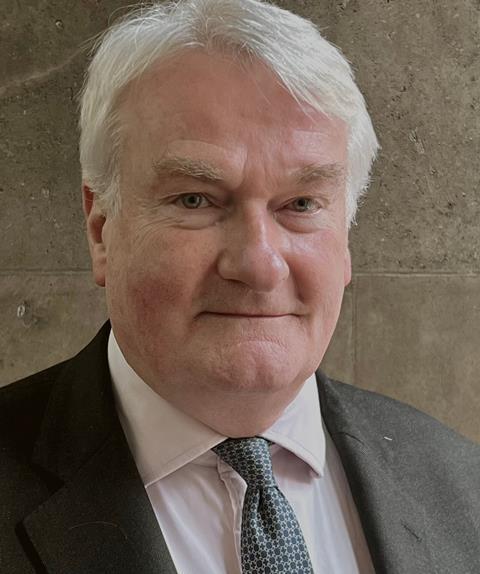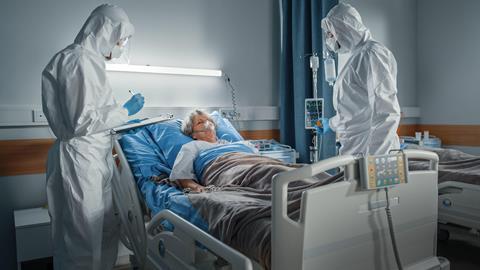Bond Solon expert witness conference
Expert witnesses in non-legal aid cases have seen an improvement in their operating environment, with fears over their liability for evidence given reduced. However, some face novel claims and ‘pressure’ from solicitors is a growing complaint. These were among the themes to emerge from the annual Bond Solon expert witness conference, held last week.
Experts’ liability
Widespread concern arose about witnesses’ legal liability for their evidence, when in 2011 the Supreme Court stripped experts of their immunity from suit in Jones v Kaney. The loss of immunity posed a risk to the justice system, it was claimed, because experts could be deterred from appearing as witnesses. The case made experts vulnerable to claims based on negligence and contract.
But 11 years on, Lord Burnett, the lord chief justice, told delegates such fears have not been realised. ‘That decision did not lead to a proliferation of litigation,’ Burnett said, as ‘very few’ experts are ‘cavalier in terms of what they’re saying’. As a result, the ‘cataclysmic consequences’ some predicted ‘have not occurred’.
The issue of liability was picked up by Helen Evans KC. She noted that the High Court had provided ‘comfort that there are boundaries beyond which the courts will not hold experts liable’ in Radia v Marks. Here, the court took account of the pressures under which experts, in this case a hospital consultant, give evidence.
She noted that numerous claims against expert witnesses showed ‘the same problems recurring’. These were ‘experts not being impartial enough’ and ‘experts focusing too much on the client and not enough on their other duties’. Experts’ ‘loyalties’ were emerging as an area of ‘novel claims’, she noted.

The issue was the subject of a Court of Appeal judgment last year. In Secretariat Consulting PTE Ltd, Secretariat International UK Ltd and Secretariat Advisors LLC v A Company [2021] EWCA Civ 6, the court decided there was a conflict of interest where an expert organisation was acting for and against the same client on two separate but concurrent arbitrations concerning the same project and same/similar subject matter. (Secretariat is a disputes consultancy that provides expert witness services.)
As to the court’s assessment of an expert’s opinion, Anthony Gold Solicitors partner Dr Jock Mackenzie said the standard and criteria were usefully set out in C v North Cumbria [2014] EWHC 61 (QB). There, Green J said that in addition to a ‘good faith’ test, the court had to be satisfied that the expert was ‘competent, respectable and responsible’.
Competence related to qualifications and experience. Respectability required that they did not veer towards an ‘eccentric’ or unacceptable end of a spectrum of opinions. Responsibility included not adopting an extreme position and adhering to the spirit and words of the Civil Procedure Rule 35 declaration for experts and assessors.
‘If on analysis of the report as a whole,’ Green J said, ‘the opinion conveyed is from a person of real experience, exhibiting competence and respectability, and it is consistent with the surrounding evidence, and of course internally logical, this is an opinion which a judge should attach considerable weight to.’
Expert witnesses, though, must have an eye on more than the jurisprudence. Bond Solon founder Mark Solon noted that a survey conducted for the conference showed some experts felt solicitors put pressure on them to ‘improve the opinion’ in their reports. ‘They should not be doing that,’ Burnett said, but added: ‘Experts have to resist it.’
Overall, the context in which experts operated had improved over time. By contrast, Burnett said, 30 years ago it was ‘not uncommon for lawyers to have a hand in drafting the expert’s report’, and, he recalled, some expert witnesses in 1980s civil cases ‘were no more than hired guns’.
Crime and regulation
Forensic science witnesses in criminal justice cases can expect to be subject to the Forensic Science Regulator’s statutory regime by the end of March 2023, incumbent regulator Gary Pugh said.
There have been delays in putting the statutory regime in place, but a consultation on a statutory code closed on 31 October. Pugh will now produce a response before finalising the code which will go first to the home secretary, then parliament, in what he described as a process that ‘looks streamlined’, he added.
Pugh noted he already has the power to launch investigations, but when parliament endorses the code he will be able to issue compliance notices, and exercise ‘the ultimate power of prohibition’. On prohibition of experts he said: ‘I hope I never have to go there. It’ll be a sad day if I do.’
Pugh said expert witness bodies should be compliant with the statutory code from the point when it was in force. In the past, expert witness codes have been introduced for different areas with deadlines set for accreditations, leading to a time lag for compliance.
He stressed that with consultation ahead of the statutory code’s design, compliance with its requirements could be planned for ahead of it coming into force. Details, he said, will be known ‘well in advance of the change’.
Remote experts and legal aid
For hard-pressed medical experts, the courts’ responses to the pandemic restrictions ushered in a welcome change. The ability to give oral evidence remotely increased the chance that the right experts had availability and reduced the time commitment required from them. This is likely to be a permanent change, not least because the court is not trying to physically assess such experts’ in-person credibility.
Solon said: ‘Experts are beginning to realise they are on the cusp of a new way of working in the legal system. They are now liable in both contract and negligence for the opinions they give and can conduct their enquiries, meetings and evidence in a digital world. Geography is not now a limitation.’ The big questions, he added, ‘are around fees, budgets and marketing’.
However, fees for experts in legal aid cases remain low, and there is little prospect for improvement in the rates. Burnett said: ‘The possibility of substantial additional resources being found for that sort of work seems to me to be fairly remote. But it is an issue in the end. If experts are genuinely needed in a case and they can’t be found, then the administration of justice is undermined.’
Burnett acknowledged there was a shortage of expert witnesses in ‘discrete areas’ such as specialist pathologists for children cases. Referring back to the impact of Jones v Kaney, he said this was not currently down to concerns about witnesses’ legal liability for their evidence given as witnesses.





































No comments yet